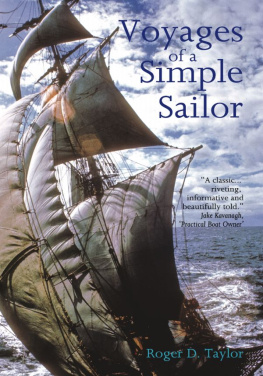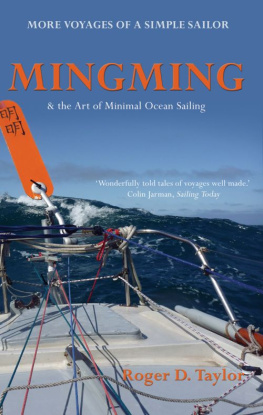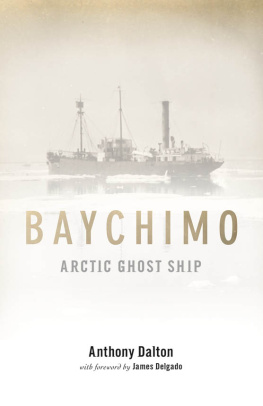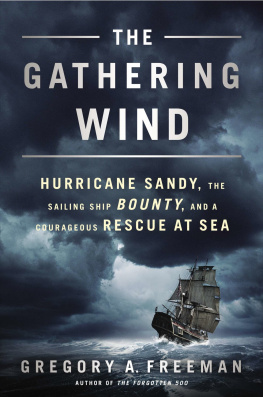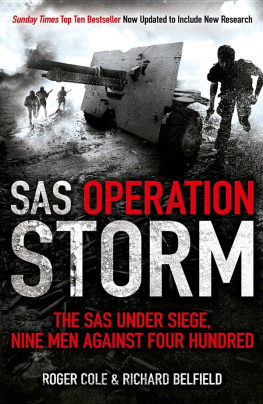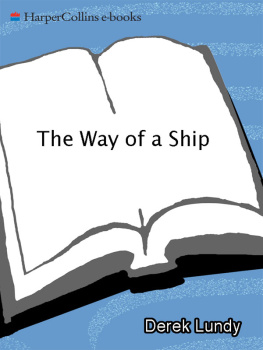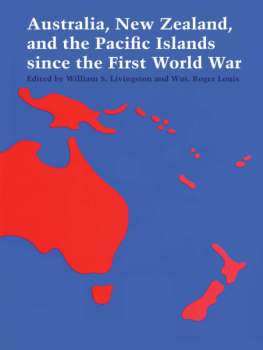Published by The FitzRoy Press 2008
F
The FitzRoy Press
5 Regent Gate
Waltham Cross
Herts EN8 7AF
All rights reserved. No part of this book may be reproduced in whole or in part (other than for purposes of review), nor may any part of this book be stored in an information retrieval system without written permission from the publisher.
Copyright 2007 Roger D Taylor
ISBN 978-0-9558035-0-5
A catalogue record for this book is available from the British Library
Publishing management by Troubador Publishing Ltd, Leicester, UK
Printed in the UK by The Cromwell Press Ltd, Trowbridge, Wilts.
This book is dedicated to my father, Angus Taylor, who at eighty-seven years of age can still keep us enthralled with his own tales of the sea.
In order to minimise the cost and ecological impact of this book, colour photographs have been omitted. Galleries of photographs linked to this text can be found at www.thesimplesailor.com
No, when I go to sea, I go as a simple sailor
Herman Melville, Moby Dick
The first two of these three voyages took place many years ago. In the intervening decades people would often suggest I write about them. The time never seemed right. I never felt ready. I thought I would probably never do it. But, in the strange way that lifes patterns assert themselves, the time suddenly arrived when I not only felt ready to revisit and write down these experiences, I felt thoroughly compelled to do so. All of a rush I wanted to get it all down on paper. Maybe the years of quiet distillation in some deep inner vault had brought the memories and images to their proper maturity. Maybe they had been waiting for the right moment to assert themselves, to be decanted from those barrels lying long immobile and untapped in some dark corner of my mind, to be brought up, poured into a clear fresh glass and held up for examination against the piercing, uncomfortable daylight of this new century.
All action needs a catalyst, and there is no doubt that it was my most recent voyage in Mingming that acted as such. The preparation and conduct of that little adventure, the third described in this book, flowed directly from the ocean experiences of over thirty years ago. I scarcely realised it at the time. The rush and excitement of finding and rebuilding a suitable small yacht, and sailing her, engine-less, down to Plymouth, all while I was running my business, precluded much considered thinking about how the present linked with the past. It was only later that I started to reflect on the logical threads that ran through all three voyages, how they all made sense of each other. Having seen the sense of it all, I realised that I could, at last, write about it
I have scarcely found a semblance of sleep in the heaving forepeak when a scream, terrifying for its naked conviction, comes down the hatch All hands on deck and bring your lifejackets! The words force themselves through my shell of semi-consciousness. They reverberate in my unwilling head, which knows already what they mean but that, for just one heartbeat, attempts to ignore them, to forget them, to pretend they never existed. Not possible. It is not possible to ignore them. Nor is it possible to ignore their meaning, nor their implication. There is no escaping them. At the second heartbeat I am fully awake and my stomach lurches. This, I know, is finally it. For three days, since weathering the North Cape of New Zealand, we have been fighting for survival. Storm force winds from the north-east, the leftovers of a tropical storm that has wound its way down from the Pacific Islands, have swept in and pinned us between North Cape to the north, and Cape Karikari to the south. We are in the classic shipwreck position of the square-rigger embayed between two headlands with an onshore gale and no way to sail out. Unless conditions change, there is only one outcome the ship will be driven onto the hostile shore to leeward. The land is now close to, somewhere ahead in the blackness under our lee bow. We cannot tack ship in these conditions. To wear round on to a southerly tack would lose us another mile or so; bring us a mile closer to our certain demise. By midnight, an hour ago, when my watch turned in, grateful for some respite from the searing wind and rain, we knew there was little hope. Nothing overt was said, but the ships complement was tense and sombre. Each man, and the one woman, had retreated to his or her own private contemplation of what now seemed inevitable. Little was said apart from the barest necessities for running the ship. The usual banter and backchat had evaporated. We were grim, deadly so. A simple and unvoiced question preoccupied every one of us will I be alive by dawn? Or will I be dead? And if I am dead, what will be the manner of my dying?
I was living and working in Cairns, North Queensland, when I first read about the Endeavour II. By then I was twenty-three years old and was fully embarked on a life of adventure. At age eight I had run away from home to seek my fortune. An empty stomach brought me home by teatime. At ten I first went to sea, in a ten-foot dinghy. The owner and skipper was my best friend David. We sailed out into the tidal waters of the Dee estuary. This was strictly forbidden. We were supposed to be sailing within the confines of the marine lake. For the first time I saw a clear horizon from the deck of a small yacht Liverpool Bay, where the great ships come and go to places beyond imagination. An inexpressible yearning was born, a need, a compulsion which haunts me to this day.
At age fifteen, by which time my long-suffering parents had accepted that their injunctions held little sway, I had hitchhiked around Western Europe. A head-on collision in the south of France had left me hospitalised in Nice for a week. Battered but undaunted, I carried on through northern Italy and Switzerland. The red mercurochrome that had been used to treat the lacerations on my face worked wonders in stopping sympathetic drivers. At seventeen, prior to going to university, I hitchhiked across Europe and Turkey to Iran, Iraq and Syria. This was a thirteen thousand mile round trip. I took 40 with me and came home with 4 in my pocket. A little money was made on the way selling my blood in Greece and street busking in Istanbul.
After graduating I set off again, this time with a girlfriend. We hitchhiked across Europe, Turkey and Iran and on to Afghanistan, over the Khyber Pass to Pakistan and then by special train (there was a war on at the time) to India. We took respite from the teeming streets of Old Delhi with a trip up to the old colonial hill station of Mussoorie, in the Himalayan foothills.
Next stop was Bangkok, and escape from that noisy city to the calm and charm of Pattaya Beach on the Gulf of Siam. Pattaya is now a notorious destination for so-called sex tourists, a metropolitan nightmare of bars, hotels and brothels selling every kind of sleaze to every kind of sleaze-bag. In the late sixties it was close to idyllic a long curve of empty white sand, on the one side a clear turquoise sea, on the other groves of palms and bamboo hiding teak-built Thai houses on stilts. The idyll was offset, however, by the US Army Rest and Recreation Centre at the north end of the beach. The Vietnam war was in full swing. GIs were sent here on battle leave. We got to know some of the US soldiers and had access to some of their facilities in particular their fleet of sailing dinghies.
On we went to Singapore, where my long hair marked me out as an undesirable. Our passports were confiscated and we were given just a few days to appear at one of their offices with a paid ticket out of the island state, when our passports would be returned to us. This put paid to the idea of trying to find passage on a merchant ship to the Philippines. The last of our money bought a flight to Perth, Western Australia.
Next page
